Pathology Study Guide
Welcome to the study guide for pathology! Pathology is the study of diseases, their causes, processes, development, and consequences. It is a vital field in understanding and treating various medical conditions. Here's a breakdown of key concepts to help you understand pathology:
Causes of Disease
- Genetic Factors: Some diseases are inherited from our parents through our genes.
- Environmental Factors: Exposure to certain chemicals, radiation, or pollutants can lead to the development of diseases.
- Infectious Agents: Pathogens such as bacteria, viruses, and parasites can cause infectious diseases.
- Lifestyle Choices: Poor diet, lack of exercise, and habits such as smoking can contribute to the development of diseases.
Processes of Disease
- Inflammation: The body's response to injury, infection, or irritation, often characterized by redness, swelling, heat, and pain.
- Cellular Injury: Damage to cells due to various factors, leading to functional and structural changes.
- Immune Response: The body's defense mechanism against foreign substances and pathogens, which can also lead to autoimmune diseases.
- Tissue Repair: The body's ability to heal and regenerate damaged tissues.
Types of Diseases
- Neoplastic Diseases: Diseases involving abnormal growth of cells, such as cancer.
- Metabolic Diseases: Conditions affecting the body's metabolism, such as diabetes and thyroid disorders.
- Degenerative Diseases: Diseases characterized by progressive deterioration of body functions and structures, such as Alzheimer's disease and osteoarthritis.
- Infectious Diseases: Diseases caused by pathogens, including bacterial, viral, and fungal infections.
Consequences of Disease
- Organ Dysfunction: Diseases can impair the normal function of organs, leading to symptoms and complications.
- Complications: Some diseases can lead to secondary complications, affecting multiple organ systems.
- Prognosis: The likely course and outcome of a disease, which can vary based on various factors.
- Treatment and Management: Strategies to control, alleviate, or cure diseases, including medication, surgery, and lifestyle modifications.
Understanding pathology is crucial for healthcare professionals to diagnose, treat, and prevent diseases. It also plays a significant role in medical research and the development of new therapies. Good luck with your studies!
.◂Science Worksheets and Study Guides First Grade. My senses
Study Guide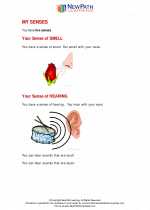 My senses
My senses  Activity Lesson
Activity Lesson My Senses
My Senses  Worksheet/Answer key
Worksheet/Answer key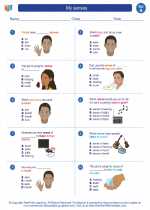 My senses
My senses  Worksheet/Answer key
Worksheet/Answer key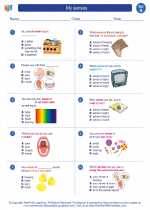 My senses
My senses  Worksheet/Answer key
Worksheet/Answer key My senses
My senses  Worksheet/Answer key
Worksheet/Answer key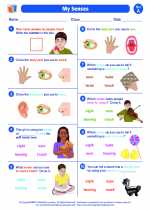 My senses
My senses  Worksheet/Answer key
Worksheet/Answer key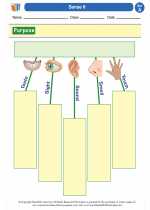 Sense It
Sense It  Worksheet/Answer key
Worksheet/Answer key The Senses
The Senses  Vocabulary/Answer key
Vocabulary/Answer key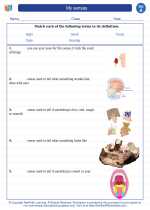 My senses
My senses 

 Activity Lesson
Activity Lesson
 Worksheet/Answer key
Worksheet/Answer key
 Worksheet/Answer key
Worksheet/Answer key
 Worksheet/Answer key
Worksheet/Answer key
 Worksheet/Answer key
Worksheet/Answer key
 Worksheet/Answer key
Worksheet/Answer key
 Worksheet/Answer key
Worksheet/Answer key
 Vocabulary/Answer key
Vocabulary/Answer key

The resources above cover the following skills:
PHYSICAL SCIENCE (NGSS)
Waves and their Applications in Technologies for Information Transfer
Students who demonstrate understanding can:
Make observations to construct an evidence-based account that objects can be seen only when illuminated.